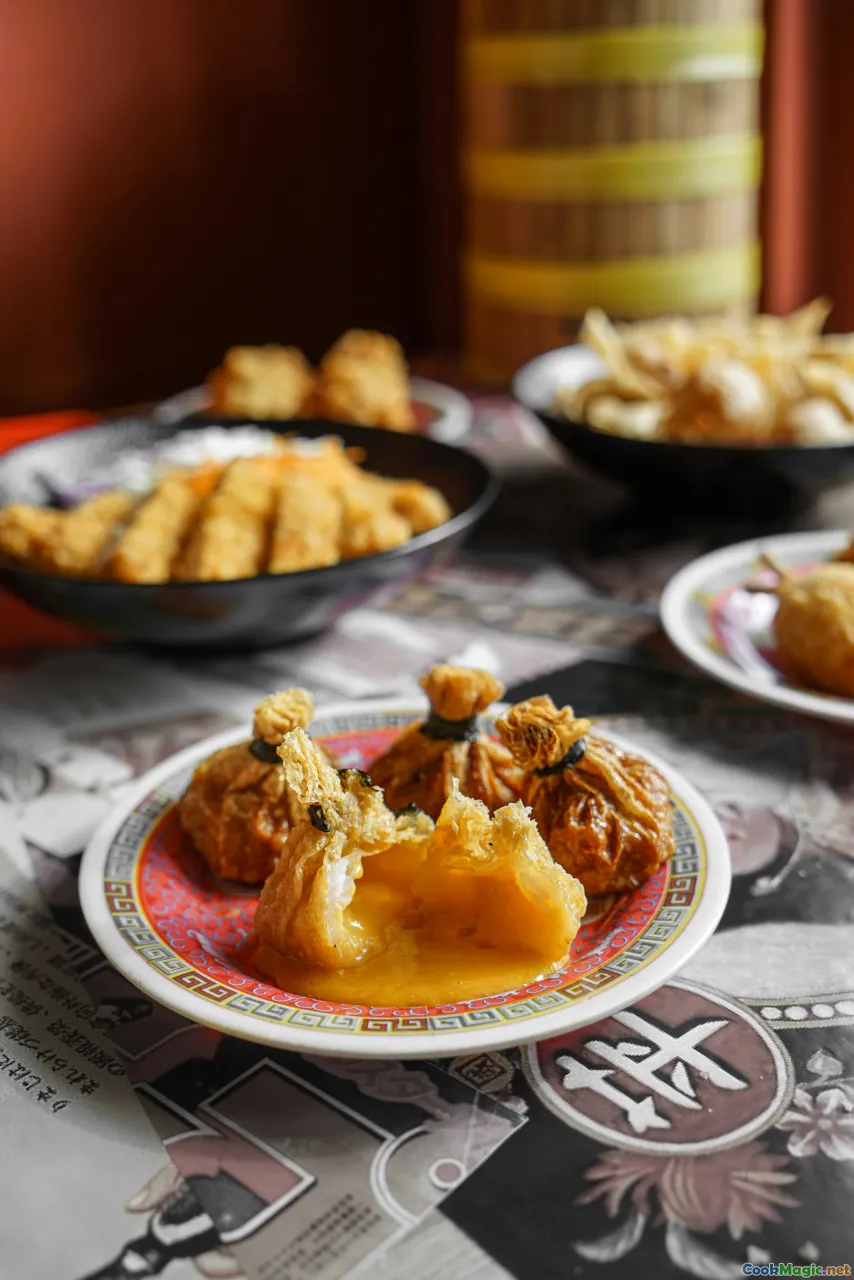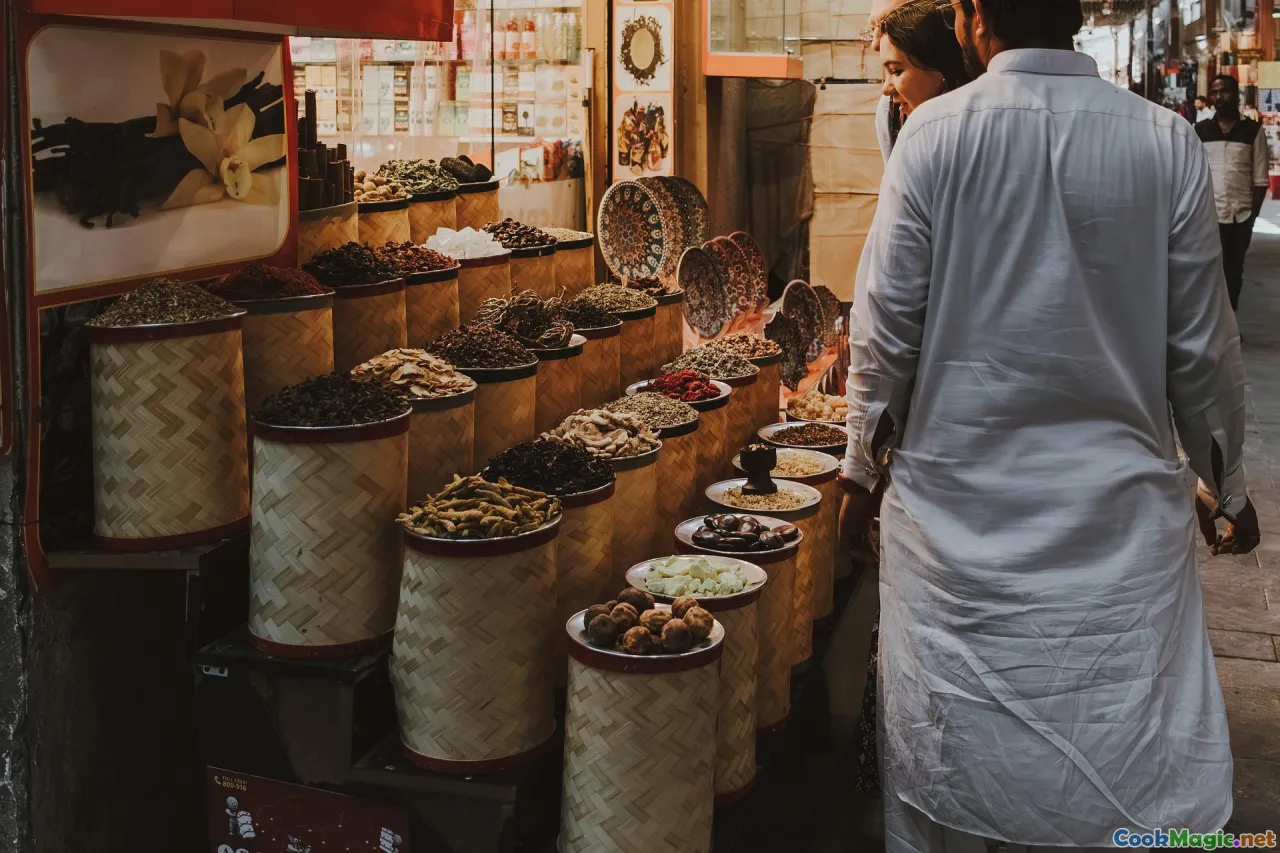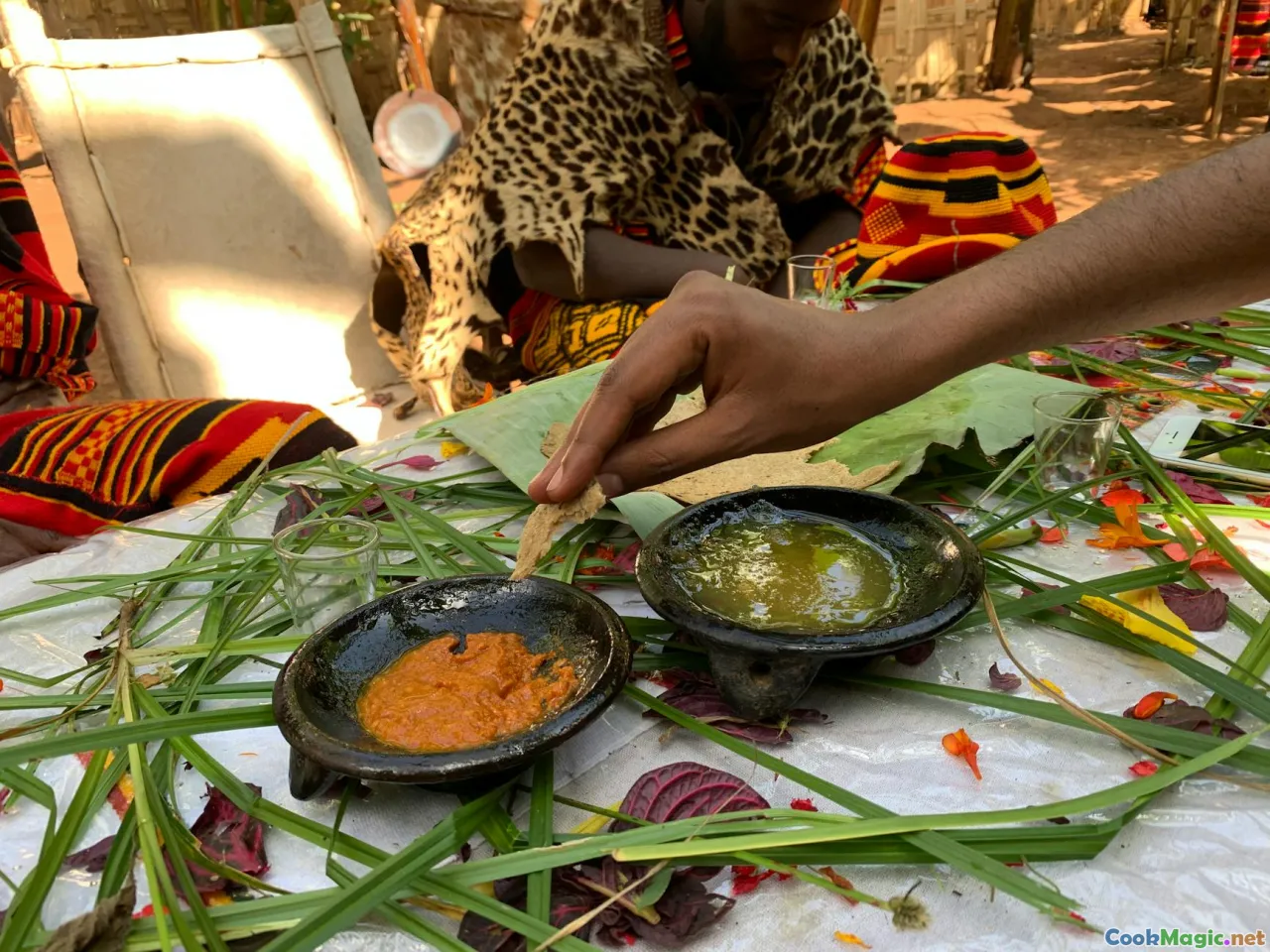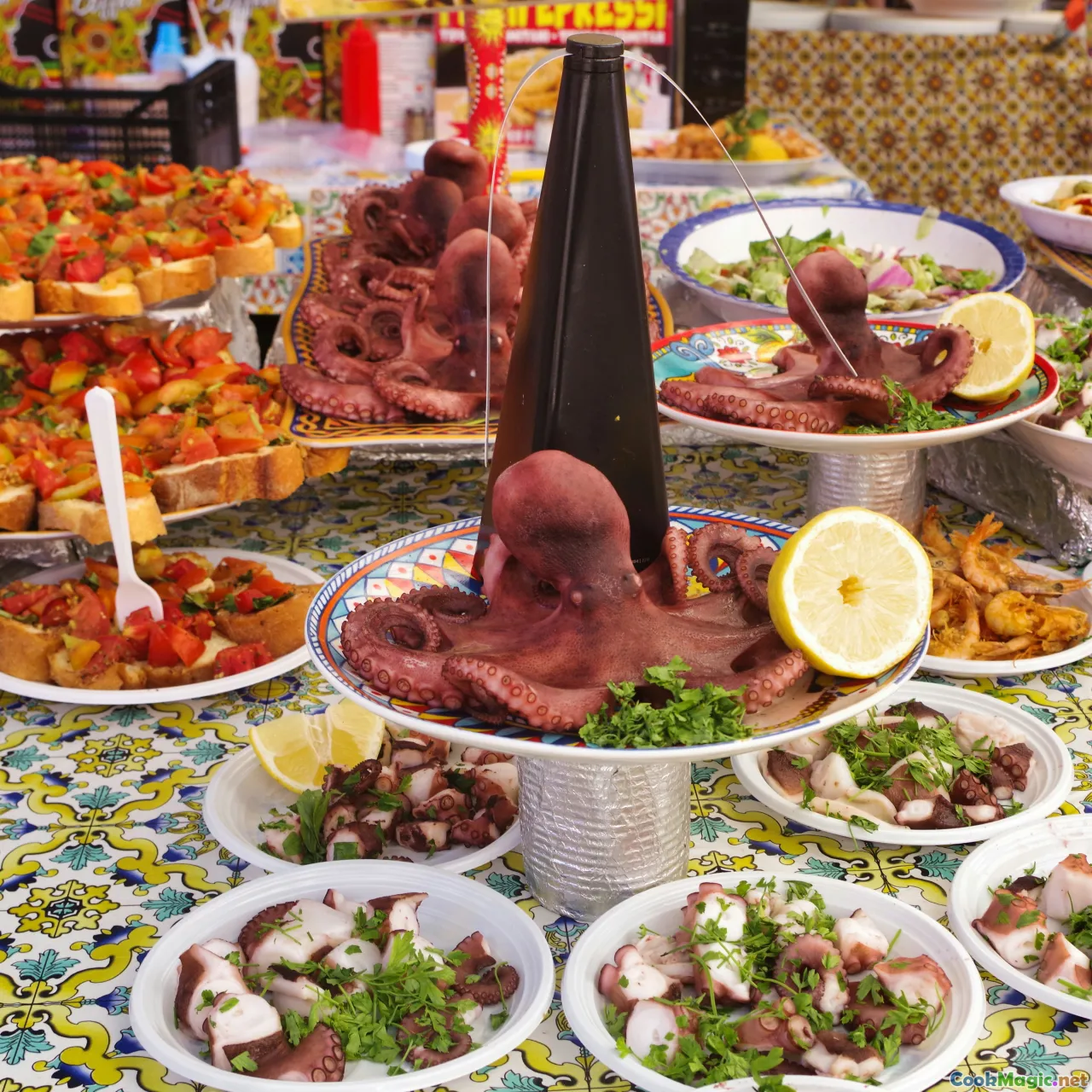Poulet Meshi Stuffed Chicken with North African Flair
10 min read Explore the vibrant flavors and traditional techniques behind Poulet Meshi, a Tunisian stuffed chicken infused with North African spices and culinary heritage. July 23, 2025 06:05
The Allure of Poulet Meshi: A Journey into North African Flavors
When you think of North African cuisine, imagine a tapestry woven with the vibrant hues of saffron, the aromatic whispers of cumin and coriander, and the bold, comforting embrace of slow-cooked spices. Among the culinary gems of Tunisia, Poulet Meshi stands out as a timeless dish—an emblem of home-cooked hospitality, rooted in history, and bursting with flavor. As a culinary traveler, I’ve often found myself enchanted by this masterpiece, not just as a meal but as an aromatic voyage through the sands and souks of Tunis.
The Heart of Tunisia’s Culinary Heritage: Origins and Significance

Tunisian cuisine is the crossroads of Mediterranean, Arab, and African influences, reflected vividly in its complex, hearty dishes. Poulet Meshi—literally translating to “stuffed chicken”—embodies this rich confluence. Historically, it’s served as a festive centerpiece during family gatherings, celebrations, and religious feast days, symbolizing prosperity and warmth.
Evolving from humble village recipes passed through generations, Poulet Meshi incorporates local ingredients like preserved lemons, olives, and a unique blend of North African spices. It’s revered not only for its satisfying flavors but also for the communal act of preparation, turning simple ingredients into a meaningful shared experience.
Crafting the Perfect Poulet Meshi: Step-by-Step

Creating an authentic Poulet Meshi at home involves a meticulous balance of flavors and textures. Here’s a detailed guide to bringing this North African treasure to your table:
Ingredients:
- 1 whole chicken (about 1.5 to 2 kg)
- 2 large onions, finely chopped
- 3 cloves garlic, minced
- 1 cup Arborio or short-grain rice
- 1/2 cup chopped fresh parsley and coriander
- 2 preserved lemons, quartered
- 1 cup green olives, pitted
- 2 teaspoons ground cumin
- 1 teaspoon ground coriander
- 1 teaspoon saffron threads, soaked in warm water
- 1 teaspoon paprika
- 1/2 teaspoon cayenne pepper (optional for heat)
- Salt and black pepper to taste
- Olive oil
Filling Preparation:
- In a skillet, heat a generous splash of olive oil.
- Sauté onions and garlic until translucent and fragrant, about 5 minutes.
- Add herbs and spices—cumin, coriander, paprika, cayenne—and cook for another minute.
- Stir in rice, preserved lemons, olives, and a pinch of salt. Cook for 2-3 minutes, letting the rice absorb the savory aromas.
- Remove from heat and let cool slightly.
Assembling Poulet Meshi:
- Carefully loosen the skin of the chicken without tearing it, creating a pocket.
- Stuff the rice mixture evenly under the skin, distributing it to fill the cavity thoroughly.
- Sew the openings or secure with toothpicks.
- Rub the exterior with salt, pepper, and additional spices if desired.
- Roast in a preheated oven at 180°C (350°F) for about 1.5 hours, or until golden and juices run clear.
The Final Touch:
Rest the chicken for 10 minutes before carving to allow juices to settle. Serve slices, allowing the fragrant stuffing to spill out and mingle with the warm bird.
Sensory Explosion: Tasting and Serving

Bringing Poulet Meshi to life on your plate is an invitation to explore layered textures and tastes. The tender, golden chicken skin gives way to succulent, spice-studded meat enveloping the aromatic rice stuffing. The preserved lemons lend a bright, citrusy punch, perfectly balanced by the briny depth of olives.
Offering a slice, you experience a symphony: fragrant saffron, pungent garlic, hearty rice, and savory chicken—all harmonized with the warmth of North African spices. Accompany with crusty bread, a light salad of cucumber and tomato, or a side of harissa-spiced vegetables.
Cultural Rituals and Personal Stories

In Tunisian homes, the making and sharing of Poulet Meshi is more than a meal—it's a cultural ritual, reinforcing bonds across generations. I once visited a small village outside of Tunis, where a family prepared Poulet Meshi for a wedding feast. The aroma filled the narrow alleyways, weaving through the bustling souk, drawing neighbors to gather and watch.
My host, Fatima, explained that the dish’s journey begins with selecting the freshest chicken and the most fragrant spices brought from the medina. She shared that each year, the dish evolves—slightly tweaked with hints of cinnamon, a dash more of preserved lemon, always with love as the main ingredient.
In every bite, there’s a sense of history, community, and celebration—a signature of Tunisian hospitality.
Tips for Authenticity and Personalization

- Use quality ingredients: Authentic spices, fresh herbs, and good-quality chicken elevate the dish.
- Preserved lemons are key: They add a distinctive tang—try making your own or sourcing from specialty stores.
- Adjust spice levels: Depending on your palate, increase or reduce cayenne or cumin.
- Experiment with variations: Some chefs add a touch of cinnamon or cube sweet potatoes into the stuffing for a twist.
- Slow roasting: For tender, juicy meat, consider using a covered casserole or slow-roasting for extra depth.
The Broader North African Gallery: Comparing Similar Dishes

Poulet Meshi shares familial ties with dishes across North Africa. For example, Morocco’s Dakhlia features stuffed chicken with preserved lemon and olives, whereas Algeria basks in Tajines packed with dried fruits and spices—a testament to regional nuances. Each locale imparts its customs, yet all celebrate the richness of communal, spice-laden feasts.
A Personal Conclusion: Embodying North African Hospitality

Cooking Poulet Meshi is for me a sensory homage to the warmth and richness of Tunisian heritage. It’s a dish that invites careful attention, patience, and love—all qualities that resonate deeply within the North African ethos of hospitality. These dishes are not merely nourishment but stories told through flavor, aroma, and shared moments.
So, next time you crave a dish that’s humble yet regal, complex yet comforting, remember Poulet Meshi. Let it be a bridge—connecting your kitchen to the bustling streets of Tunis, to generations of cooks whose hands have crafted this artful harmony of spice and soul.
May each bite bring to life the vibrant spirit of North Africa, filling your home with warmth and your spirit with discovery.









